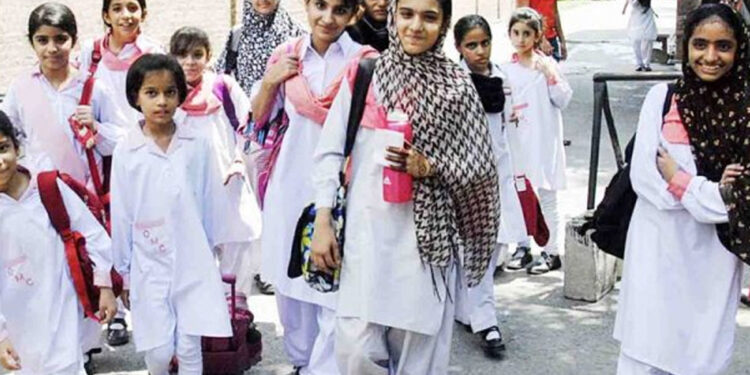Lahore, Punjab – In response to the ongoing smog crisis affecting the region, the provincial government of Punjab has announced a 20-day winter break for schools, set to run from December 20, 2024, to January 10, 2025. The decision aims to protect students’ health amid severe air pollution, but it has sparked criticism, particularly from the Private School Association, over its potential impact on the academic year.
Smog Crisis Leads to Extended Winter Break
With smog levels reaching hazardous levels, authorities have opted to extend the winter break in a bid to safeguard children’s well-being. The Air Quality Index (AQI) in Lahore, for example, remains classified as “Unhealthy,” with PM2.5 concentrations more than 15 times above the World Health Organization’s recommended limits. As a result, the government has taken preventive measures, including closing schools early to mitigate students’ exposure to harmful air pollutants.
Concerns Over Academic Disruptions
While students are excited about the extended break, the decision has drawn sharp criticism from education stakeholders, particularly the All Pakistan Private Schools Association (APPSA). The association voiced concerns about the growing disruptions to the academic calendar, warning that a longer winter vacation would further compress the already shortened school year, which currently stands at only around 120 days.
The APPSA has suggested that a more balanced approach might be to reduce the winter break to 10 days, striking a compromise between addressing health risks and maintaining academic progress.
Judicial Recommendations for Extended Break
In a related development, the Lahore High Court has supported the idea of an extended winter break. The court proposed that primary schools remain closed until mid-January to protect young learners from the harmful effects of smog. This suggestion comes as part of a broader set of measures to combat the ongoing pollution crisis, which includes limiting construction activities and other pollution-reduction efforts.
The Smog Situation in Lahore and Beyond
Despite ongoing efforts to control the pollution, air quality in Lahore and other parts of Punjab remains a significant concern. With an AQI consistently hovering at “Unhealthy” levels, residents and authorities alike continue to grapple with the adverse effects of smog. The Punjab government’s decision to extend the winter holidays reflects the severity of the air quality situation, as exposure to high levels of particulate matter can lead to respiratory issues and other health complications.
A Balance Between Health and Education
The debate continues over the balance between student health and the impact on the academic calendar. While health experts emphasize the need to protect children from smog-related health risks, educators worry that frequent school closures and prolonged breaks may compromise students’ educational outcomes.
As the situation unfolds, it remains to be seen whether the extended winter break will be a one-off measure or if it will set a precedent for future responses to the smog crisis.
In the meantime, schools are encouraged to explore alternative solutions, such as online classes, to make up for lost instructional time and ensure that students do not fall behind due to the disruptions caused by the ongoing pollution crisis.









